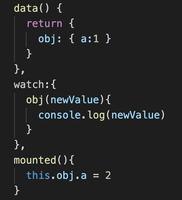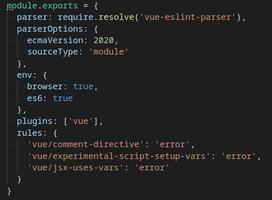浅谈vux之x-input使用以及源码解读
前言
近期项目中使用的vux中的input,以及使用自定义校验规则和动态匹配错误提示,有时间记录下自己的使用经历和源码分析。希望大家多多指正,留言区发表自己宝贵的建议。 详解 列举官方文档中常用的几个属性的使用方法,代码如下
<group ref="group">
<x-input v-model="name"
class="vux-input__name"
title="名字"
placeholder="tell me your name"
required
:is-type="checkNameValid"
@on-change="onValueChange">
<div slot="label"
class="name__icon">
<icon type="success"></icon>
</div>
</x-input>
</group>
官方文档有详细的解释, required 属性表示此选项为必填, is-type 可以绑定一个函数,作为校验,这个函数得返回一个对象。格式如下
checkValid(name) {
return {
valid: name === '三只萌新',
msg: '你不是萌新'
}
}
valid可以设置为你的校验规则,需要返回一个布尔值,msg是错误的提示信息。
vux本身写好几种校验方式,如果使用 email,china-name,china-mobile 这几种方式直接绑定字符串即可。
solt插槽如slot="label"用于自定义title,源码如下
<slot name="label">
<label class="weui-label"
:class="labelClass"
:style="{width: labelWidth || $parent.labelWidth || labelWidthComputed, textAlign: $parent.labelAlign, marginRight: $parent.labelMarginRight}"
v-if="title"
v-html="title"
:for="`vux-x-input-${uuid}`"></label>
<inline-desc v-if="inlineDesc">{{ inlineDesc }}</inline-desc>
</slot>
分析:class="labelClass"动态绑定样式以对象的形式返回一个{[className]:Boolean}的格式的对象
labelClass() {
return {
'vux-cell-justify':
this.$parent.labelAlign === 'justify' ||
this.$parent.$parent.labelAlign === 'justify'
}
}
同样的方式查看他父级是否有labelAlign属性,vux-cell-justify类名对应的样式没有应用。
使用场景
场景1
假设在一个提交页面,当我们提交时判断输入框中的值是否是符合我们的要求,如果不符合,给出错误提示,如果符合提交后将输入框中的数据清空。
需求:
如果还有停留在本页面我们需要将上一次的数据全部清空
问题:
我们需要初始化值,但是会发现如果我们设置了required后校验还是会触发。如何让数据清空并且让校验也清空。
解决方法:
文档中写了reset可以重置输入框值,清除错误信息
使用方式:
在x-input外层的group标签上绑定ref来访问子组件。因此我们可以通过 this.$refs.group.$children获取到input组件集合并且可以使用组件中定义的reset方法
如果你的项目中已经安装了vux可以通过安装Search node_modules查找node_modules文件夹中vux安装包路径为 vux/src/components/x-input/index.vue 文件 reset方法源码如下:
reset(value = '') {
this.dirty = false
this.currentValue = value
this.firstError = ''
this.valid = true
}
回到我们的业务逻辑中当我们点击提交按钮时代码如下
onSubmitClick() {
if (!this.isInvalid) {
this.$refs.group.$children.forEach(child => {
child.reset()
})
} else {
// 展示提示信息
this.isShowToast = true
}
本以为这样就可以清空数据了,没想到点击按钮时数据是清空了,但是还是有报错图标显示。
通过 vue-devtools可以看到
valid的值为false查看vux源码查看涉及到valid代码如下
validate() {
// ...省略与本次无关的校验方法
if (!this.currentValue && this.required) {
this.valid = false
this.errors.required = '必填哦'
this.getError()
return
if (typeof this.isType === 'function') {
/*
取出自定义函数中的校验结果 是一个Boolean
checkNameValid(name) {
return {
valid: name === '三只萌新',
msg: '你不是萌新'
}
}
*/
const validStatus = this.isType(this.currentValue)
this.valid = validStatus.valid
if (!this.valid) {
// 如果校验值无效将自定义校验的msg赋值给errors对象下的format
this.errors.format = validStatus.msg
this.forceShowError = true
this.getError()
return
} else {
// 如果校验值有效则将error对象下的format删除
delete this.errors.format
}
// 如果都符合将valid赋值为有效
this.valid = true
}
}
validate函数校验当前是否有值,是否为必填, 如果当前值的校验方式是函数,将校验结果赋值给valid 。如果valid是false则将自定义的msg统一存储在errors对象下, errors是用来存储不同类型的错误信息 。 然后执行getError函数
getError() {
let key = Object.keys(this.errors)[0]
this.firstError = this.errors[key]
console.log('firstError' + this.firstError)
}
Object.keys(this.errors)返回errors对象下的所有可枚举属性,并且取第一个作为键名,取出对于的值赋值给firstError ,firstError是提示框文字
<toast v-model="showErrorToast"
type="text"
width="auto"
:time="600">{{ firstError }}</toast>
当点击错误图标判断是否有firstError,shouldToastError未传入值默认为true,点击时如果valide校验为错误时会触发getError函数将错误提示赋值给firstError,所以会将fistError对应的提示信息显示出来。而图标的显示与否与valid有关,其中一个条件是valid为false时才会显示。
<icon @click.native="onClickErrorIcon"
class="vux-input-icon"
type="warn"
:title="!valid ? firstError : ''"
v-show="showWarn"></icon>
shouldToastError: {
type: Boolean,
default: true
}
showWarn() {
return (
!this.novalidate &&
!this.equalWith &&
!this.valid &&
this.firstError &&
(this.touched || this.forceShowError)
)
}
onClickErrorIcon() {
if (this.shouldToastError && this.firstError) {
this.showErrorToast = true
}
this.$emit('on-click-error-icon', this.firstError)
}
分析了上面的代码,为什么执行了reset方法后,校验报错还是在,原因是valid依然还是false,导致showWarn返回值是ture,而reset中方法中明明将valid设置为true了,为什么最后结果为false。
watch:{
currentValue(newVal, oldVal) {
if (newVal && this.equalWith) {
if (newVal.length === this.equalWith.length) {
this.hasLengthEqual = true
}
this.validateEqual()
} else {
this.validate()
}
}
}
因为监听了input绑定currentValue的值,当reset方法执行的时候this.currentValue = ' ' 触发了变动执行validate方法,导致再次给this.valid赋值false。
该如何解决这个问题,问题发生的原因是currentValue发生变化导致触发validate方法校验,所以我们只要当执行reset方法后不触发currentValue改变就可以不触发validate方法校验
方法一:
onSubmitClick() {
this.$refs.group.$children.forEach(child => {
// 这次reset是将currentValue全部置为""
child.reset()
})
this.$nextTick(() => {
// 当所以input的值都置为空后在此执行reset方法,这次前后currentValue没有发生变化不会触发validate校验所以valide为true不会导致图标出现
this.$refs.group.$children.forEach(child => {
child.reset()
})
})
}
方法二: 其实想做的就是在reset方法执行之前将currentValue置为空
created(){
this.currentValue =
this.value === undefined || this.value === null
? ''
: this.mask ? this.maskValue(this.value) : this.value
},
props:{
value: [String, Number]
},
watch:{
value(val) {
this.currentValue = val
}
}
可以通过传入value来改变currentValue的值,将v-model="name"绑定值的方式改为:value="name"
onSubmitClick() {
this.name = ''
this.$nextTick(() => {
this.$refs.group.$children.forEach(child => {
child.reset()
})
})
}
场景2
当我们点击提交时,如果有校验选项不符合规则能提示相匹配的警告
data(){
return {
message: '还未填写信息'
}
}
将message提示信息初始值设置为还未填写信息,当我们未进行填写信息的时候点击提交显示。然后使用on-change函数绑定校验规则,实时更新message对应的提示语,业务逻辑如下:
onValueChange() {
// 多次使用赋值给变量
const children = this.$refs.group.$children
let statusList = []
// 筛选出有值的,作为是否全部未填的判断依据 如果length小于1则还没填写任何内容
statusList = children.filter(item => {
return item.currentValue
})
if (statusList.length < 1) {
this.message = '还未填写信息'
return
}
// 找到第一个没有值的那一项,如果都有则返回undefined
const firstInvalid = children.find(item => {
return !item.valid
})
if (firstInvalid !== undefined) {
this.message = `请填写正确的${firstInvalid.title}`
}
// 显示的将是否有效赋值给valid增加代码可读性
this.valid = Boolean(firstInvalid)
}
github:代码地址
以上是 浅谈vux之x-input使用以及源码解读 的全部内容, 来源链接: utcz.com/z/324084.html






